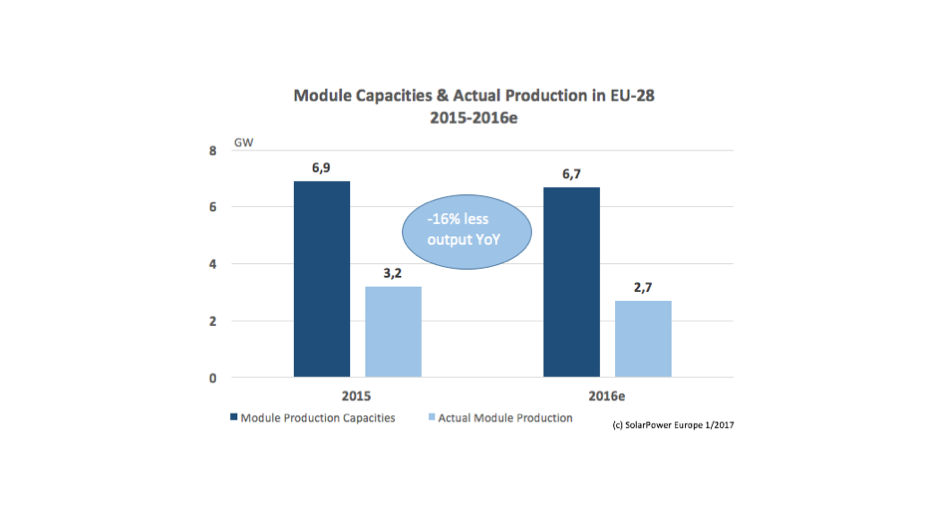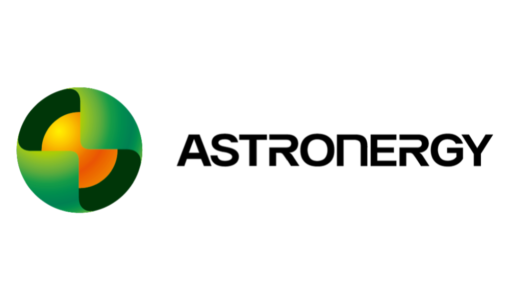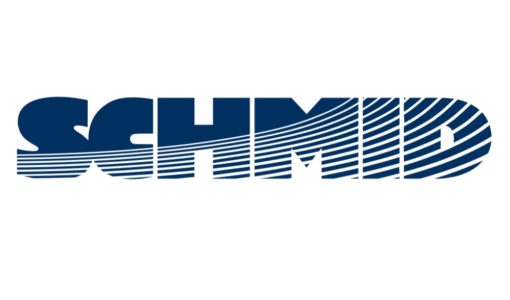- Module manufacturers had facilities in the EU with 6.7 GW annual production capacity, a 3% drop from 6.9 GW in 2015, according to a survey by Solar Power Europe, the association of the European solar sector
- Module production output in the EU decreased by 16% to around 2.7 GW in 2016, from 3.2 GW in 2015
- Utilization of EU-based module factories decreased to 40% in 2016, down from 46% in 2015
- Cell manufacturing capacities remain much lower than module capacities in the EU at a constant level of around 1.8 GW in 2015-16
Solar module production capacities in the European Union (EU) decreased in 2016, while the output of EU factories dropped in a two-digit range, according to a survey by Solar Power Europe, the association of the European solar sector.
In 2016, module manufacturers had facilities in the EU with 6.7 GW annual production capacity, a 3% drop from 6.9 GW in 2015. Production output decreased by 16% in the same period to around 2.7 GW, from 3.2 GW in 2015. The utilization of the module factories in the EU continued to decline to 40% in 2016, from 46% the year before.
The survey also shows that cell manufacturing capacities remain much lower than module capacities in the EU at a constant level of around 1.8 GW in 2015-16. But even this small cell capacity is mostly used in-house.
Michael Schmela, Executive Advisor and Head of Market Intelligence at SolarPower Europe, stated, “Our survey shows that unfortunately many of the EU module production facilities are simply ghost capacities. There are several reasons for the consolidation of the EU’s solar module production sector, including the rather low demand for solar in Europe and local module factories being often too small to compete for standard solar applications. But a key factor making local EU-based module manufacturers life very hard today is the Minimum Import Price (MIP) for solar cells, which keeps low-cost Asian products the companies need at artificially high levels. If the European Commission really wants to see module manufacturing jobs in the future in the EU, it needs to abandon the MIP and measures now.”
James Watson, CEO of SolarPower Europe added, “The European Commission has missed a chance to support European module manufacturers in its recent recommendations on the expiry review of the EU-China trade case. The proposed maintenance of anti-dumping and anti-subsidy duties even for a period of 2 more years will negatively affect the entire solar sector in the EU. If Europe really wants to benefit from low-cost solar power, the Commission and the EU Member States have to say ’No’ to an extension of the duties.”












